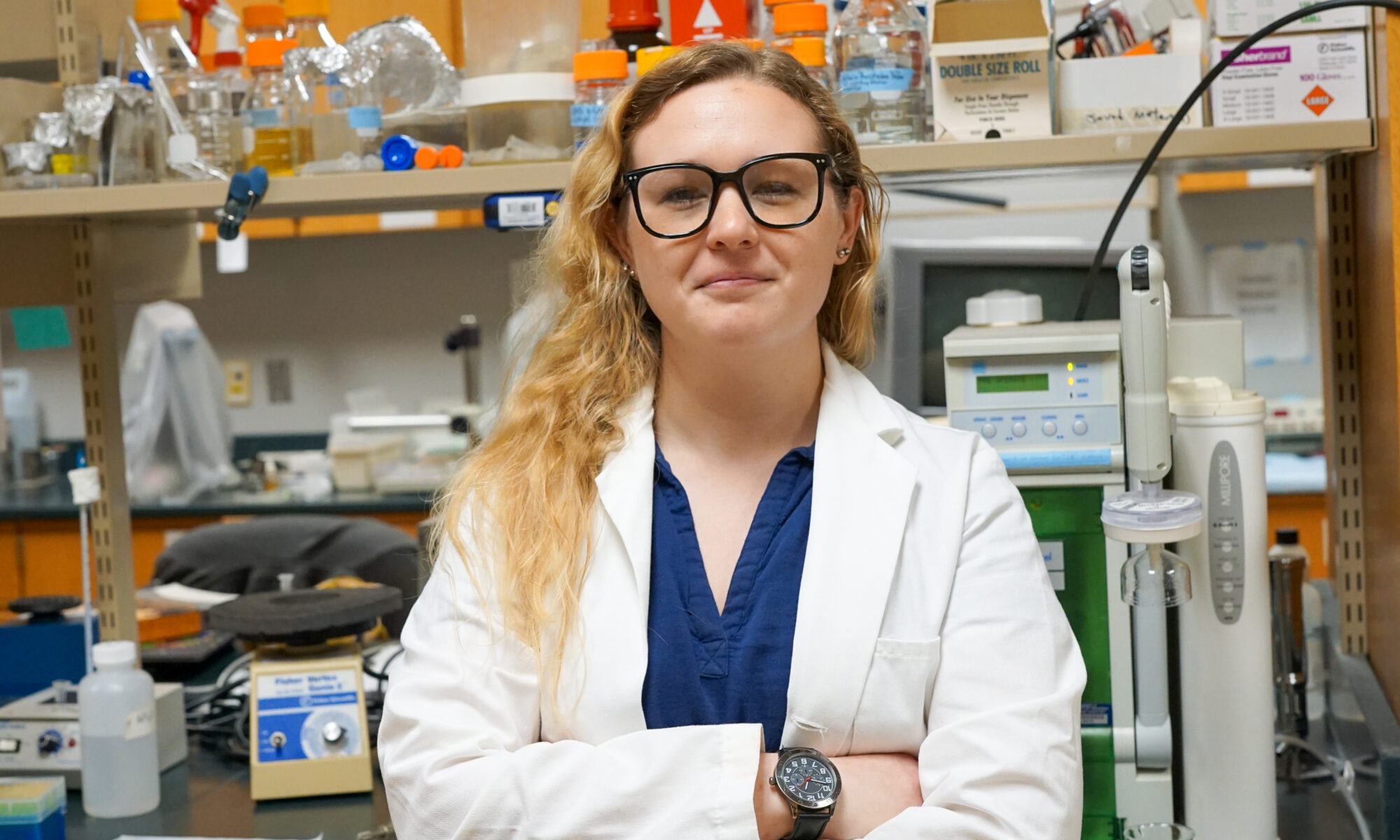
For Amanda Penicks, the passion for agriculture began at the age of five in Southern California. Raised in a small farming community, Penicks was involved in the 4-H youth organization and participated in various experiences that deepened her interest in agriculture.
After receiving her bachelor’s degree and working as a research assistant, Penicks moved to Knoxville to pursue a master’s degree in entomology and plant pathology. She currently works in the Plant Virology Laboratory under the guidance of Dr. Reza Hajimorad. In her free time, she hangs out with friends and goes for walks to enjoy the beautiful scenery.
Q&A with Amanda Penicks
Can you tell us a little bit about yourself?
I’m from a small farming community in Southern California, where my passion for agricultural sciences began at the age of five. I grew up involved in the 4-H youth organization, joining nearly every project and group related to science and technology. These early experiences increased my interest in agriculture and laid the foundation for my future in plant pathology.
I later earned my degree in Agricultural Science from California State Polytechnic University, Pomona, with minors in Pest and Disease Management, International Agribusiness, and Horticulture. During my studies, I worked in a medical entomology lab and held research assistant roles at Cal Poly Pomona and UC Agriculture and Natural Resources, as well as an Integrated Pest Management and Integrated Vector Management role at Disneyland Resort. Each position I’ve held has centered around pests, pathogens, and disease management.
What is your current concentration?
My concentration is in plant pathology with a focus in plant virology.
Why did you choose this field of study?
It is never dull or mundane! I enjoy working with plant pathogens as they are diverse and wide range of impact to agricultural systems. Specifically with viruses, these systems challenge me to think in creative and abstract means. Their complexity and diversity require a deep understanding of molecular biology, yet they constantly surprise me with how they interact with their hosts and adapt to new environments.
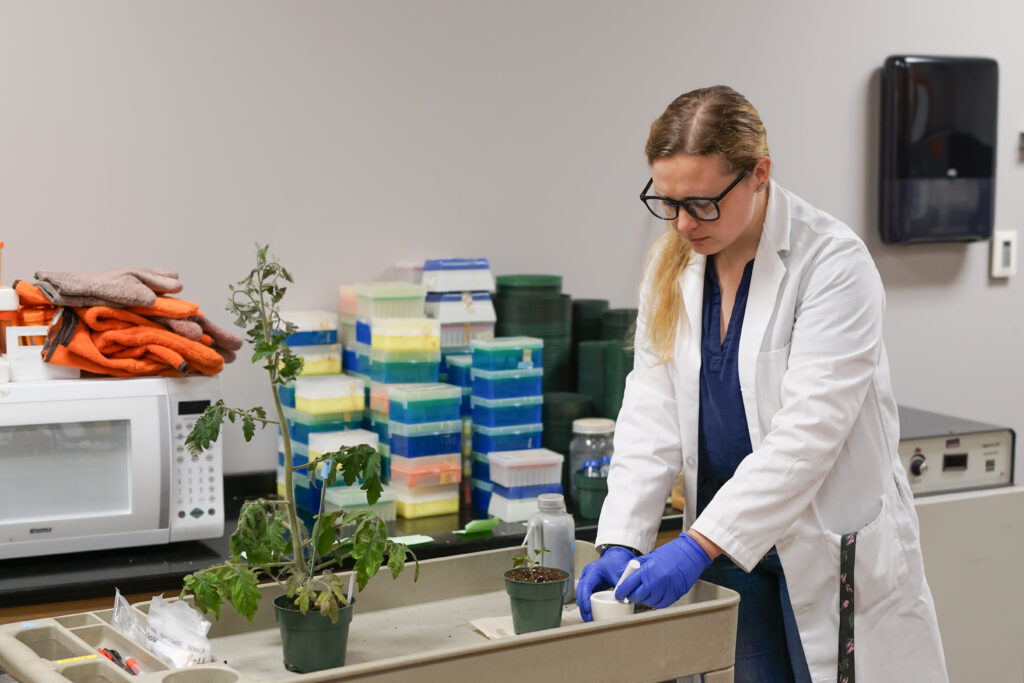
Studying viruses pushes me to imagine beyond what’s visible—to piece together how something invisible to the eye can have such a massive impact on an entire plant or even an agricultural system. It’s like solving a living puzzle that’s always shifting. I’m drawn to that combination of science, imagination, and strategy.
What is your current research question?
My research focuses on the detection and molecular characterization of two economically important viruses which impact tomato production at a global level- Tomato yellow leaf curl virus and Tomato brown fruit rugose virus. The goals are to survey tomato fields in Tennessee for the presence of these viruses, to molecularly characterize the newly identified TYLCV isolate from the state (TYLCV-TN), and to test how five popular tomato cultivars respond to TYLCV-TN infection using a synthetic genomic approach. The findings will help inform growers and support the development of effective management strategies to protect tomato production in the region.
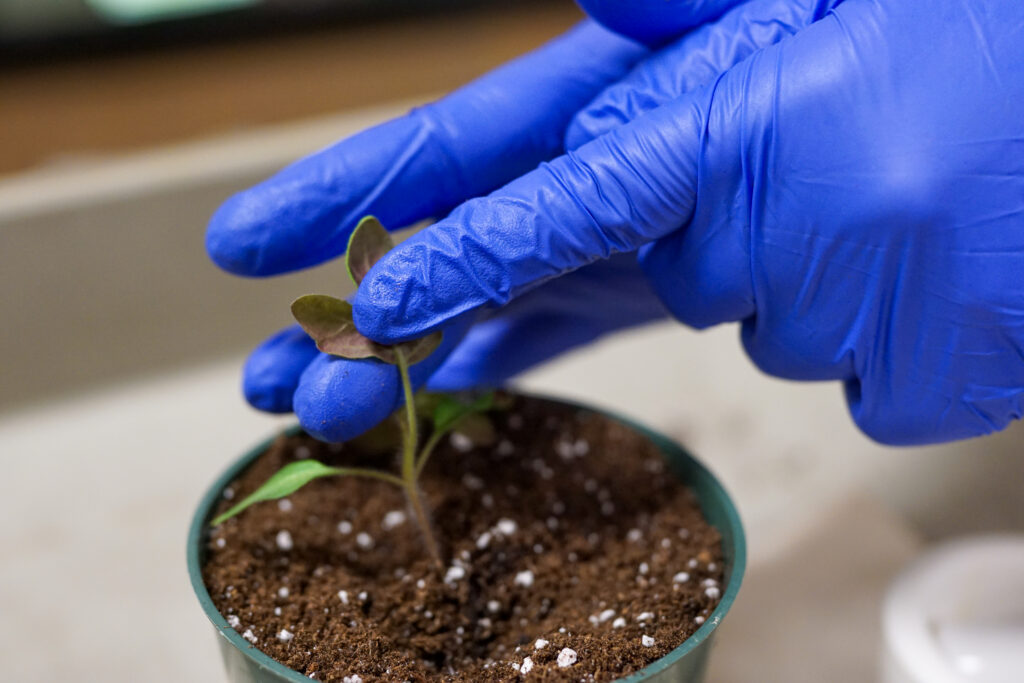
Can you tell us more about your research and its potential impact?
My research has the potential to benefit tomato producers by detecting and characterizing emerging viruses and evaluating their impact on popular tomato cultivars grown in Tennessee. This work provides insight into the viruses’ ability to overcome resistance, their spread, and evolutionary patterns, as well as how they interact with tomato hosts.
What challenges have you faced in answering your research question?
One of the challenges I have been experiencing is the generation of a full-length clone of TYLCV-TN genome. It has a unique genome organization and structure that can lead to recombination.
What academic course has been your favorite and why?
I’m partial to the virology course; it gave me a deeper insight into the field and provided valuable tools and understanding for my research.
Another course that stood out to me was mycology. I developed an appreciation for the complexity and diversity of fungi and their impact to plant health.
How has your academic training in the department prepared you for your future career?
My academic training in the department has provided me with a strong foundation in plant pathology, molecular techniques, and scientific communication. Through coursework, research, and collaborative projects, I’ve gained experience in applying these tools to real-world problems. The supportive mentorship and collaborative environment have also helped me grow as both a scientist and an effective communicator.
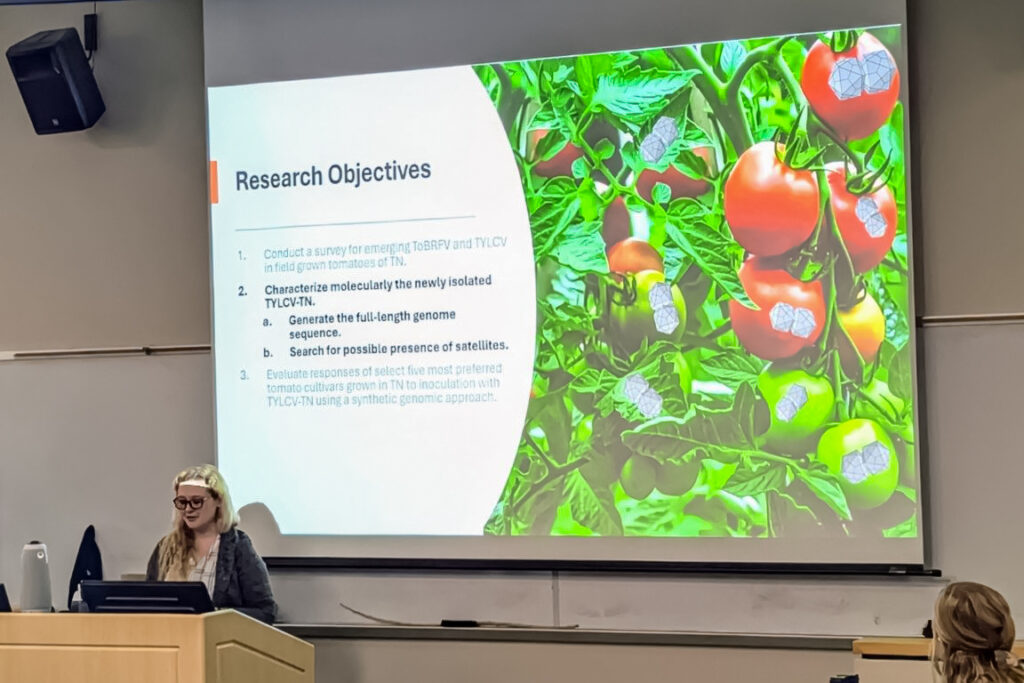
Over the past two years, I have been working in the Plant Virology Laboratory of the Entomology and Plant Pathology Department. This opportunity has broadened my skill set and deepened my understanding of scientific methodologies and enhanced my growth as a professional researcher. The research focus is centered on understanding host-pathogen interactions, specifically from the perspective of plant viruses, while integrating components from diverse scientific disciplines such as immunochemistry, immunology, microbiology, plant science, bioinformatics, molecular biology, and genetics.
What do you believe is your biggest academic achievement?
An accomplishment I’m proud of is my recent publication, First Report on the Occurrence of Tomato Yellow Leaf Curl Virus in Tennessee, which marked a significant milestone in my research journey and contributions to the field of plant pathology. Through this work, I successfully identified, cloned, and molecularly characterized the viral isolate, adding valuable insight to the understanding of emerging plant viruses in the region.
What has been the highlight of your graduate school experiences so far?
There have been several highlights during my graduate school experience so far. One of the biggest was being accepted into the master’s program as it has been an incredible opportunity for both personal and professional growth. I’ve also really appreciated the supportive environment from classmates, staff, and faculty, which has helped me expand my skills and stay motivated in my research. My advisor, Dr. Hajimorad, has been a supportive mentor by providing me with consistent guidance throughout my time at UT, motivating me to grow into a more confident and skilled researcher. For this, I will always be grateful.
I had the opportunity to collaborate with Dr. Wszelaki, Dr. Hensley, and Dr. Hajimorad to develop a factsheet to inform growers about Tomato yellow leaf curl virus (TYLCV). Additionally, I was able to meet with growers and visit their production sites, which gave me valuable insight into real-world agricultural practices and the challenges they face.
What are your favorite things to do on campus?
A few of my favorite things to do on campus outside of the lab would be walking the UT gardens and exploring the campus, and meeting up with friends for coffee.
Are you involved in any extracurricular activities?
I am a member of the Gamma Sigma Delta Honor Society.
What are your favorite hobbies?
I have a few hobbies. I collect plants, enjoy going on hiking adventures with friends (sometimes with my dogs), reading, listening to music, photography, and creating nature and botanical illustrations.
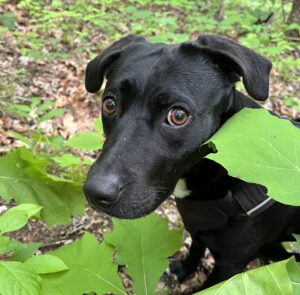
What advice would give to a prospective student considering this program?
Take the opportunity to explore, learn, and discover what truly excites you. My best advice for a prospective student would be to stay persistent if you truly want something and go out of your comfort zone but, to be adaptable as life is not always a straight path. Take both the ups and downs of life as a learning experience and take each challenge as an opportunity to grow and be a better version of yourself.
Lastly, don’t be afraid to speak up and ask questions! We belong to a field built on curiosity and inquisitive minds, embrace it.
Is there anything you would like to share?
It’s a great community and environment where people genuinely want to see you succeed.
